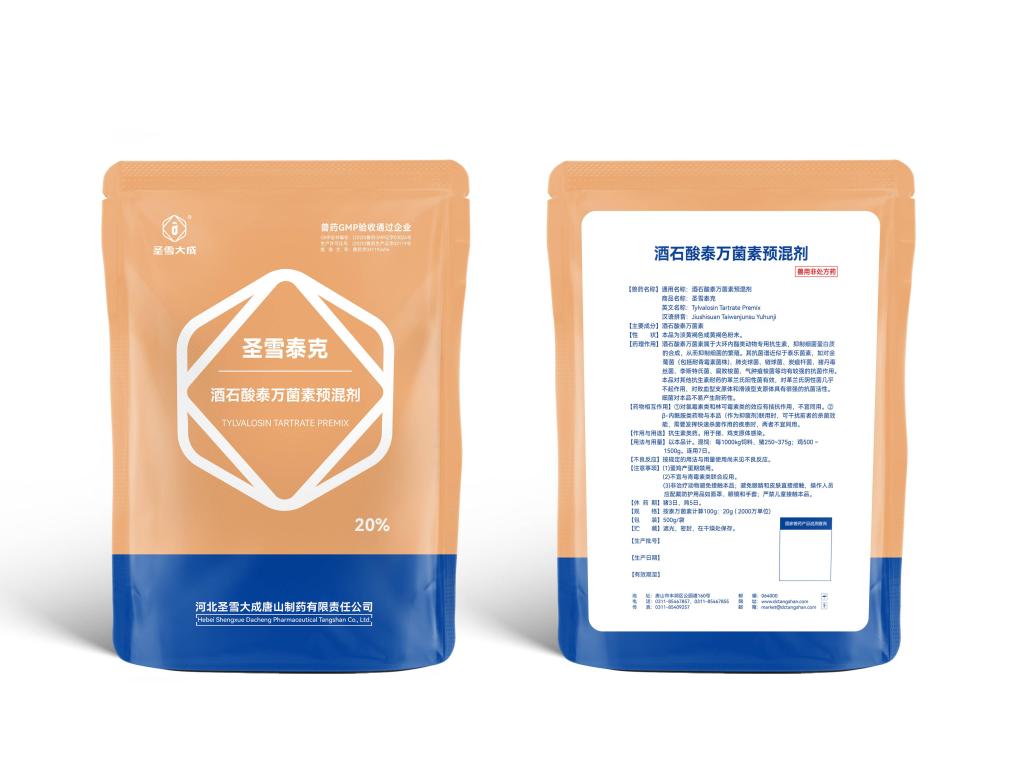Tel:+8618231198596

News
 CONTACT
CONTACT
 CONTACT
CONTACT
- Linkman:Linda Yao
- Tel: +8618231198596
- Email:linda.yao@dcpharma.cn
- Linkman:CHARLES.WANG
- Department:Overseas
- Tel: 0086 0311-85537378 0086 0311-85539701
News
Current Position:
Home >
News
>Farmers appreciate the preventative benefits of tylvalosin tartrate premix.
Farmers appreciate the preventative benefits of tylvalosin tartrate premix.
TIME:2024-08-26
Understanding Tylvalosin Tartrate Premix
Tylvalosin Tartrate Premix is a high-quality antibiotic designed specifically for use in animal feed. Its active ingredient, tylvalosin tartrate, belongs to the macrolide class of antibiotics and is known for its broad-spectrum activity against a wide range of bacterial pathogens. This makes it particularly useful in the prevention and treatment of bacterial diseases in livestock, especially swine and poultry.
Preventative Benefits for Farmers
Maintaining Herd Health:
Tylvalosin Tartrate Premix helps prevent the onset of bacterial diseases, which can rapidly spread within a herd or flock. Keeping animals healthy reduces the need for costly treatments and veterinary interventions.
Improved Feed Efficiency:
Healthy animals convert feed into body weight more efficiently. This means that farmers can achieve optimal growth rates without excessive feed usage, leading to significant cost savings.
Reduced Mortality Rates:
By preventing bacterial infections, Tylvalosin Tartrate Premix helps lower mortality rates. This is critical for maintaining high yields and minimizing financial losses due to animal deaths.
Optimized Growth Performance:
Animals treated prophylactically with Tylvalosin Tartrate Premix tend to grow faster and reach market weight sooner. This results in shorter production cycles and higher turnover rates, contributing to increased revenue.
Enhanced Animal Welfare:
Preventative measures like using Tylvalosin Tartrate Premix help ensure that animals are kept in good health, which aligns with ethical farming practices and consumer expectations for high-quality products.
Economic Benefits:
The cumulative effects of these preventative measures lead to increased farm profitability. Healthy animals, efficient feed usage, and reduced mortality translate into higher returns on investment.
Case Studies and Testimonials
Farmers who have incorporated Tylvalosin Tartrate Premix into their disease management strategies report significant improvements in herd health and economic outcomes. For example, a pig farmer in the Midwest noted a marked reduction in respiratory issues among his herd after introducing the premix. Similarly, a poultry farmer reported fewer instances of necrotic enteritis, a common bacterial disease, resulting in better growth rates and lower feed costs.
Conclusion
Tylvalosin Tartrate Premix is a valuable tool in the arsenal of preventative measures available to farmers. By maintaining the health of livestock, it helps ensure consistent production, improves animal welfare, and enhances the economic viability of farming operations. As the agricultural industry continues to evolve, such preventative approaches will become increasingly important for sustainable and profitable farming.
- Tel:+8618231198596
- Whatsapp:18231198596
- Chat With Skype







